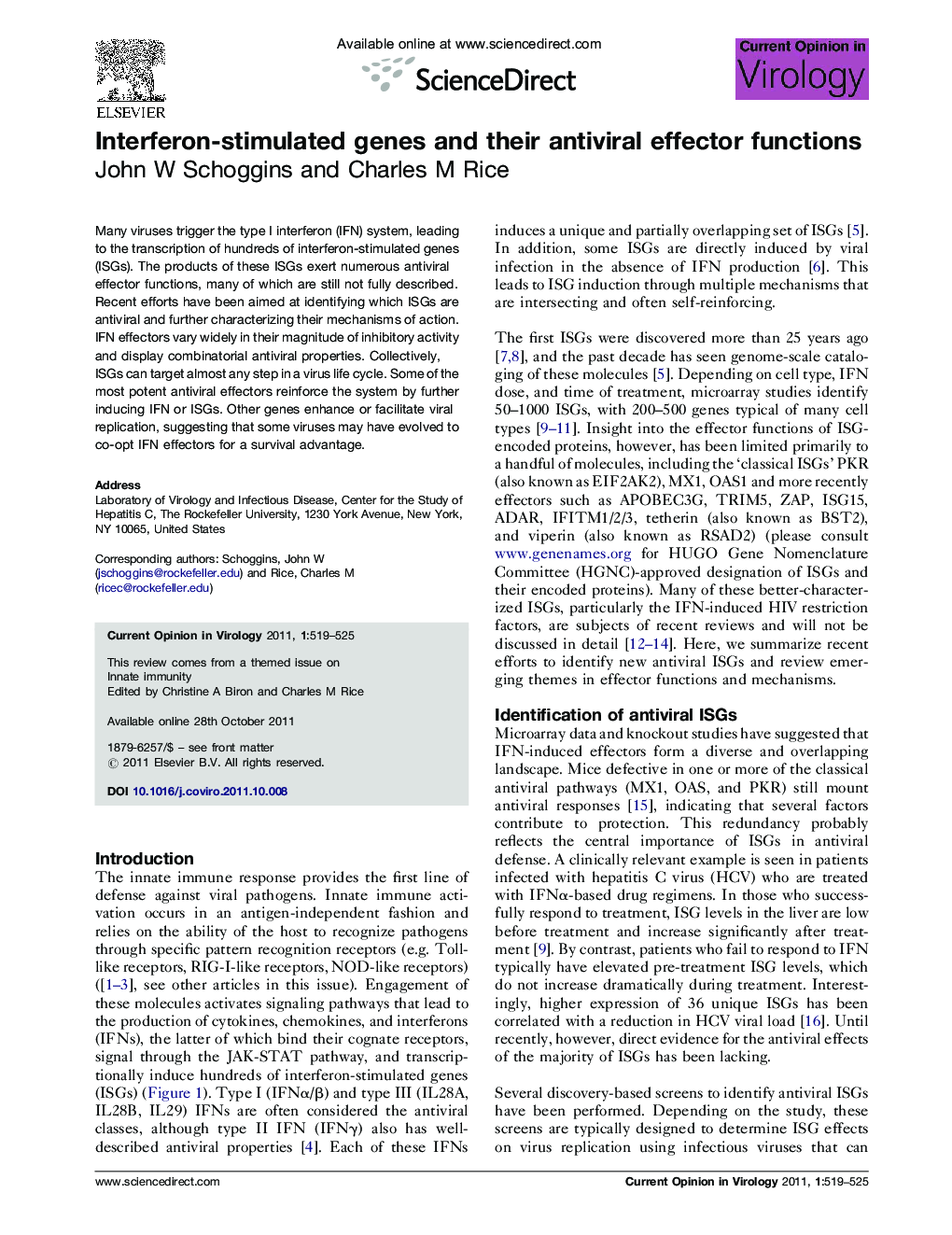| Article ID | Journal | Published Year | Pages | File Type |
|---|---|---|---|---|
| 2473405 | Current Opinion in Virology | 2011 | 7 Pages |
Many viruses trigger the type I interferon (IFN) system, leading to the transcription of hundreds of interferon-stimulated genes (ISGs). The products of these ISGs exert numerous antiviral effector functions, many of which are still not fully described. Recent efforts have been aimed at identifying which ISGs are antiviral and further characterizing their mechanisms of action. IFN effectors vary widely in their magnitude of inhibitory activity and display combinatorial antiviral properties. Collectively, ISGs can target almost any step in a virus life cycle. Some of the most potent antiviral effectors reinforce the system by further inducing IFN or ISGs. Other genes enhance or facilitate viral replication, suggesting that some viruses may have evolved to co-opt IFN effectors for a survival advantage.
► IFN induces a diverse range of antiviral effectors. ► Each virus has a unique, but partially overlapping, antiviral ‘ISG profile’. ► IFN effectors target multiple stages in the virus life cycle. ► The IFN signaling pathway is highly self-reinforcing. ► Viruses may hijack IFN effectors to promote replication.
